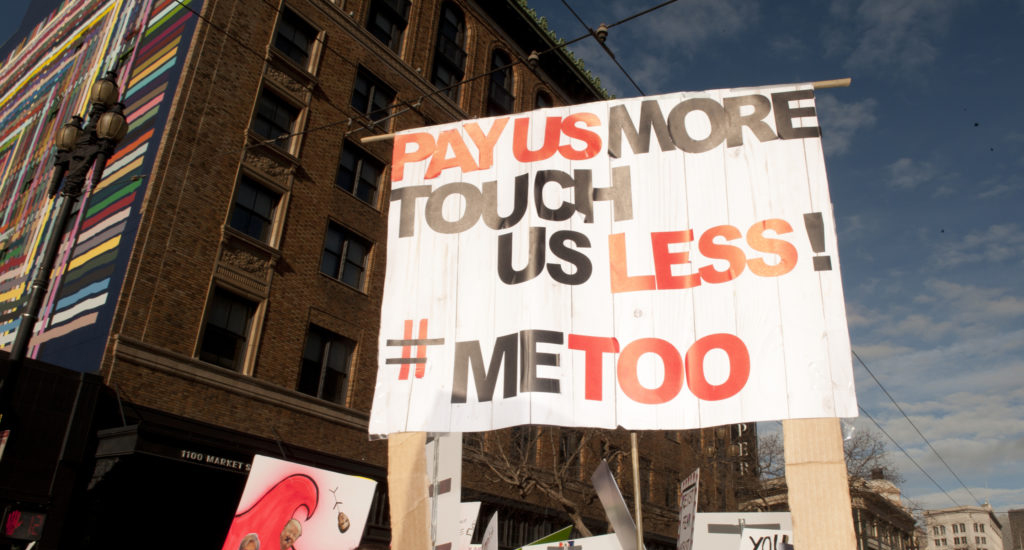

On Latina Equal Pay Day, the EEOC wants to shirk its civil rights duties
Tonight, many across the country will gather around their televisions to watch another installment of the democratic process, as the 2020 Presidential Candidates take the stage to make their case for why they should be the new leader of our nation. While this debate will run similarly to the last four, one thing will be different: The debate will be moderated by a panel made up entirely of women.
The symbolism of this detail is heightened by the fact that today we also observe Latina Equal Pay Day. This marks the day that the average Latina worker must work in this calendar year to catch up with what their white, non-Hispanic male counterparts made by the end of the previous year alone. In other words, due to only being paid an average 54 cents per dollar paid to white men, Latinas must work an additional 11 months (for a total of 23 months) in order to make what a white, non-Hispanic man made in just 12.
November 20 also marks another occurrence: It is the day that the U.S. EEOC will be holding a public hearing to determine whether it will roll back or weaken current pay data collection requirements for employers, making it even easier for employers to underpay Latina and other workers without being detected.
Having to wait until just weeks from 2020 to make what white men were paid in 2018 alone more than shows the usefulness of the data that the EEOC plans to disregard.
What does this mean exactly? Well, it means that the EEOC — a federal agency created and designed to enforce the civil rights laws against workplace discrimination, an agency whose directive derives from the Civil Rights Act of 1964 — will no longer collect pay information that is broken down by job category, gender, race, and ethnicity. They claim that collecting this data would impose a burden on employers that outweighs the usefulness of the data for the agency.
To question the usefulness of collecting data that breaks down pay information by race, gender, and ethnicity — by an agency that was literally designed to protect and investigate complaints about race, gender, and ethnicity discrimination in the workplace — is extremely flawed, and runs counter to the purpose of the EEOC, which is to protect civil rights.
As the EEOC considers whether employers suffer an undue burden by collecting this data, they ignore the burden suffered by women across the country who work fulltime, year round, and make pennies on the dollar compared to their male colleagues. And for women of color, women who sit at the intersection of gender and race discrimination, the failure to collect this data places them in an even worse position, with Latinas getting another short end of the stick.
As the EEOC considers whether employers suffer an undue burden by collecting this data, they ignore the burden suffered by women across the country who work fulltime, year round, and make pennies on the dollar compared to their male colleagues.
Having to wait until just weeks from 2020 to make what white men were paid in 2018 alone more than shows the usefulness of the data that the EEOC plans to disregard. Because of the wage gap that Latinas experience, the average Latina worker stands to lose $1,121,440 over the course of her 40 year career.
And the gap widens as more education is acquired. Latinas with a Bachelor’s degree are typically paid less than white, non-Hispanic men with only a high school education, and must earn a Master’s degree to earn what white, non-Hispanic men who have an Associate’s degrees are paid.
As we observe Latina Equal Pay Day, and mark the conclusion of the 23 months where Latinas finally make their fair yearly wage, we must also remember that all women are catching up. Because when some of us are behind, we are all behind. So as the next set of debates air, and as advocates make their voices heard in the hearings with the EEOC, let’s commit to banding together to uplift the voices of our lesser heard sisters and collectively, demand more.
Shannon Williams is the Director of the Equal Pay Today! Campaign, a project of Equal Rights Advocates. Follow her on Twitter @swilliamsERA
Mónica Ramírez is the founder of Justice for Migrant Women and co-founder of Alianza Nacional de Campesinas. Follow her on Twitter and Instagram @monicaramirezDC
Stay Connected & Take Action
- Get the Latest News & Information Sign up for Email Updates
- Sign Up for Action Alerts Join the Action Team
- Follow Us

